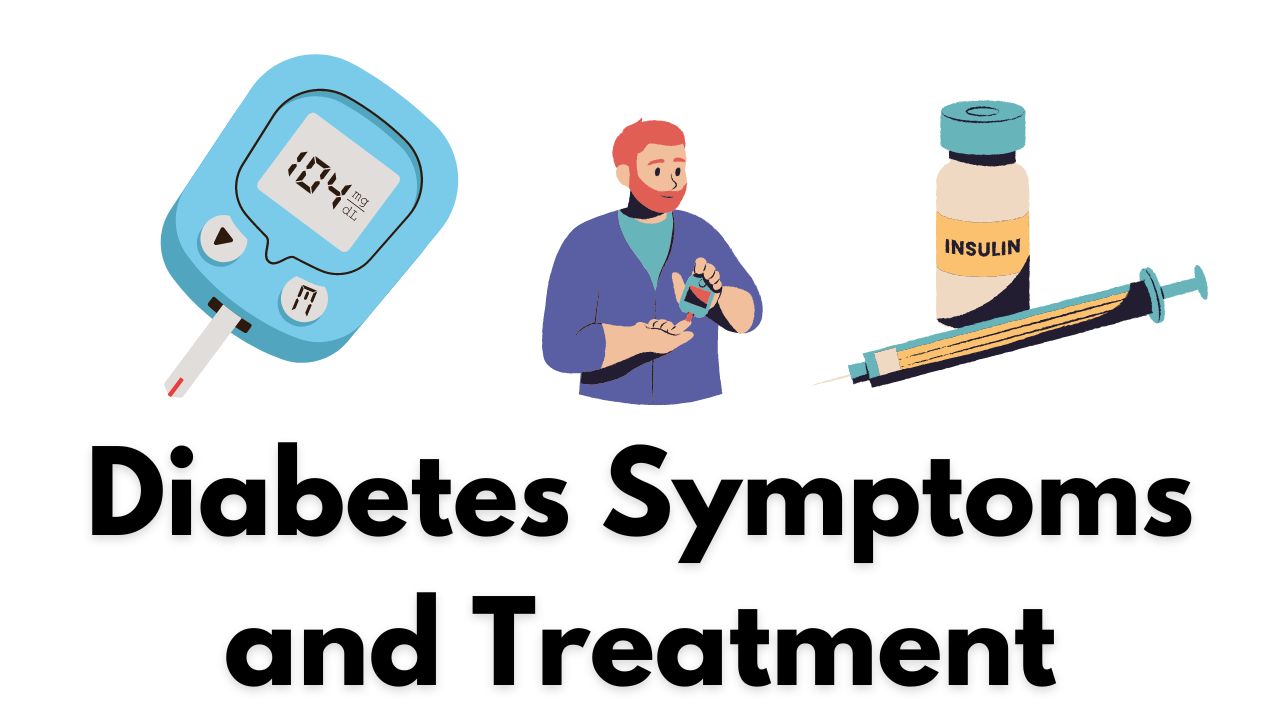In today’s blog post, we will delve into the symptoms and treatment of Diabetes. Gaining knowledge about Diabetes symptoms and treatment is compulsory. Ensure thorough reading till the conclusion to gain complete insights.
Diabetes is an extremely perilous ailment. Neglecting the timely initiation of diabetes treatment can lead to significant complications. However, consistent and timely treatment can pave the way for an improved quality of life.

Diabetes is a regular condition that impacts millions of people worldwide. Identifying its symptoms and learning the available treatment methods for successful control is urgent. This article will delve into the overall signs of diabetes and explore different approaches to managing the condition to ensure individuals can maintain a healthy lifestyle.
Indications of Diabetes – what signs of diabetes??
Diabetes presents itself through numerous prominent indicators that should not be disregarded. Recognizing these cues can lead to early detection and timely intervention. The subsequent list outlines typical manifestations of diabetes:
- Frequent Urination: Excessive urination often serves as an initial indication caused by excess glucose in the bloodstream.
- Excessive Thirst: Dehydration stemming from frequent urination results in persistent thirst.
- Unexplained Weight Loss: Despite having a regular appetite or an increased food intake, unexplained weight loss may occur due to the body’s inability to properly utilize glucose.
- Fatigue and Weakness: Diabetes can cause persistent fatigue and weakness due to the body’s inefficiency in effectively converting glucose into energy.
- Increased Appetite: Individuals with diabetes may experience relentless hunger even after consuming regular meals.
Diabetes Control
Controlling diabetes requires a comprehensive approach surrounding lifestyle adjustments, medications, and regular monitoring. The following are common options for controlling diabetes:
1. Medications:
– Insulin: For individuals with type 1 diabetes or advanced type 2 diabetes, insulin injections may be necessary to effectively regulate blood sugar levels.
– Oral Medications: Various oral medications can enhance insulin production or improve insulin utilization.
2. Lifestyle Modifications:
– Nutritious Diet: A well-balanced diet, including whole grains, lean proteins, fruits, vegetables, and healthy fats, plays a crucial role in diabetes management.
– Regular Physical Activity: Engaging in regular exercise helps lower blood sugar levels and improves insulin sensitivity.
– Weight Management: Achieving and maintaining a healthy weight significantly impacts blood sugar control.
3. Blood Sugar Monitoring:
– Self-Monitoring: Regularly checking blood sugar levels with a glucose meter enables informed decisions about medication dosages, dietary choices, and activity levels.
4. Diabetes Education and Support:
– Diabetes Self-Management Education: Structured educational programs provide knowledge about diabetes management, lifestyle adjustments, and self-care techniques.
– Support Networks: Connecting with support groups, online communities, and healthcare professionals offers emotional support and practical guidance.
Conclusion
Recognizing diabetes symptoms and comprehending treatment options are necessary for effective control. By being aware of the common indications and implementing appropriate lifestyle modifications, medications, and regular monitoring, individuals with diabetes can lead fulfilling lives while managing their condition effectively.